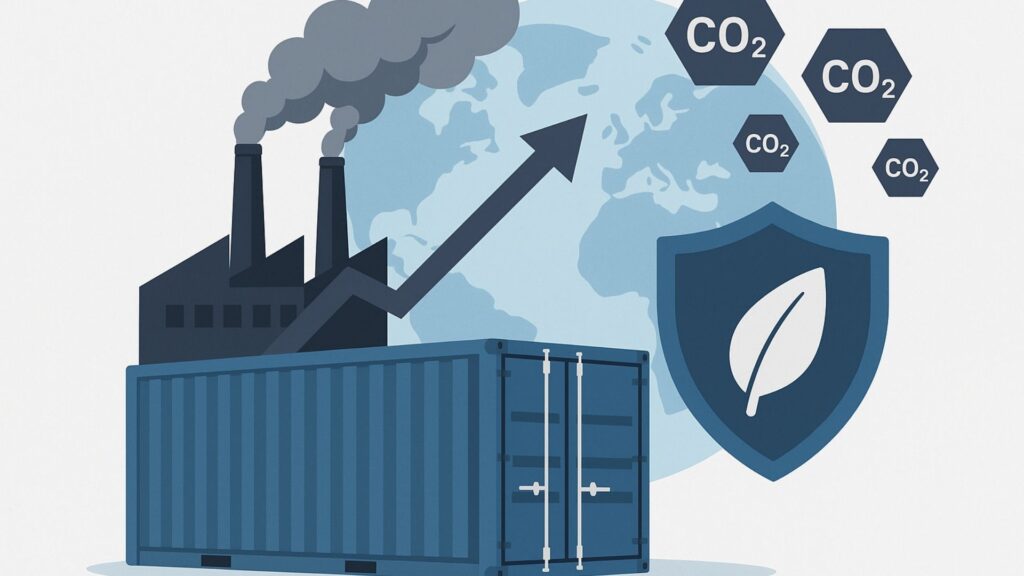The EU Carbon Border Adjustment Mechanism (CBAM) is reshaping how importers of carbon-intensive goods approach compliance. While the transitional phase began in October 2023, the definitive phase—when financial obligations start—will follow in January 2026. This makes 2025 a decisive year for companies to refine reporting processes, ensure data accuracy, and prepare for the cost implications ahead.
What Is CBAM?
CBAM was created to prevent carbon leakage by applying a carbon price to imports of emissions-intensive goods such as steel, cement, aluminium, fertilisers, electricity, and hydrogen. During this transitional period, importers are required to submit quarterly emissions reports through the EU CBAM Transitional Registry. These reports may not yet involve payments, but they build the foundation for compliance in 2026, directly affecting future CBAM certificate costs.
2025 Omnibus Reforms and Simplified Reporting
The regulatory landscape has evolved with the 2025 Omnibus reforms, which aim to simplify CBAM reporting without weakening its environmental purpose. Among the most important changes is the introduction of a 50-tonne exemption for small importers, helping reduce administrative burden for businesses with minimal CBAM exposure. The EU will also provide standardized carbon price data from 2027, making it easier for importers to calculate deductions for carbon costs already paid in the country of origin. Additionally, the annual CBAM reporting deadline has been extended to 31 August, offering companies more time to collect accurate and verified emissions data.
Why Accurate CBAM Reporting Matters
Despite these simplifications, accurate CBAM reporting remains essential. Companies that rely solely on default emissions values may face inflated compliance costs once the definitive phase begins. Engaging with suppliers early to obtain verified emissions data is therefore critical for controlling future expenses and avoiding penalties. Moreover, high-quality reporting not only reduces financial risk but also creates a strategic advantage, allowing businesses to negotiate better terms with suppliers and demonstrate compliance leadership.
The Role of CBAM Consulting
To manage this complex regulatory environment, many companies are turning to CBAM consulting. Expert consultants provide practical guidance on regulatory updates, help streamline data collection and reporting processes, and ensure that businesses remain audit-ready. They also assist in integrating digital tools that automate emissions tracking, reducing the risk of human error and improving the accuracy of reports. By combining regulatory expertise with technical support, CBAM consulting allows companies to turn compliance into a manageable, cost-saving process rather than a burden.
Preparing for 2026 and Beyond
For importers, 2025 is not just about submitting reports—it is about building the systems and partnerships that will define their CBAM compliance strategy for years to come. This includes implementing digital reporting solutions, fostering strong supplier collaboration, and leveraging expert advice to stay ahead of legislative changes. Companies that act now will not only be ready for 2026 but will also be well positioned to respond to future developments, such as potential CBAM expansion into sectors like chemicals or glass, or the upcoming UK CBAM expected by 2027.

